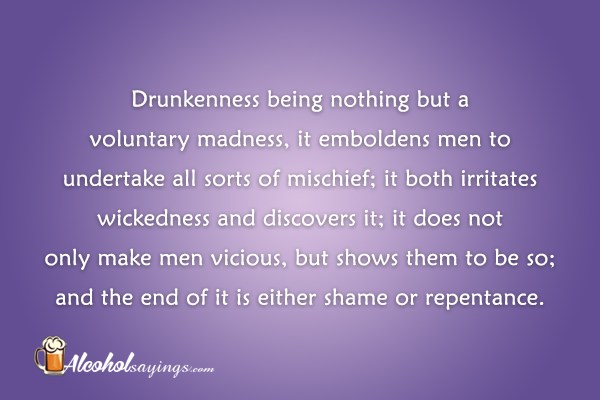“Let Us Not Become the Evil That We Deplore.”
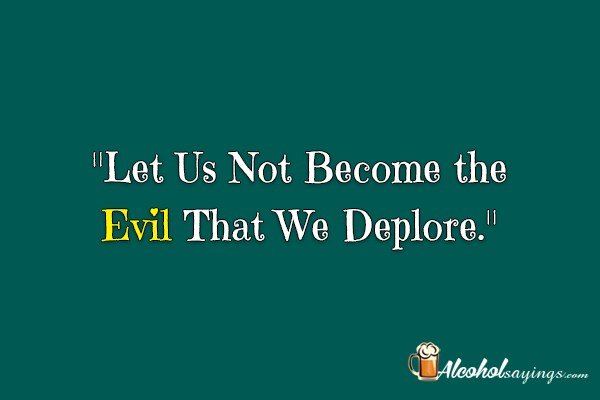
“Let Us Not Become the Evil That We Deplore.”

Often people display a curious respect for a man drunk, rather like the respect of simple races for the insane. Respect rather than fear. There is something awe-inspiring in one who has lost all inhibitions, who will do anything.
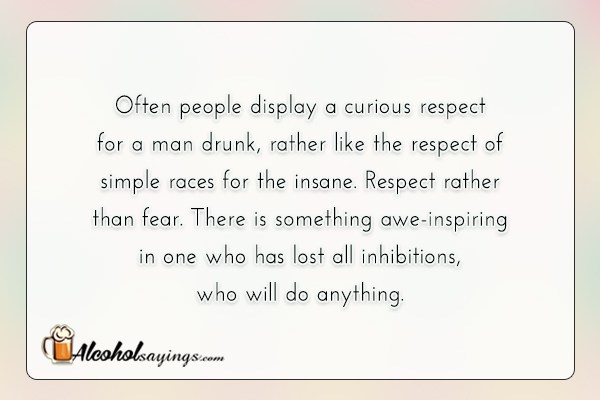
Beware of Drunkenness, lest all good men beware of you.

Where Drunkenness reigns, there Reason is an exile, virtue a stranger, God an enemy, blasphemy is wit, Oaths are rhetoric, and secrets are proclamations.

Alcohol is a pervasive fact of life, but an extraordinary fact–pleasurable and destructive, anathematized and adulated, and deeply ambiguous … the genie in the bottle.
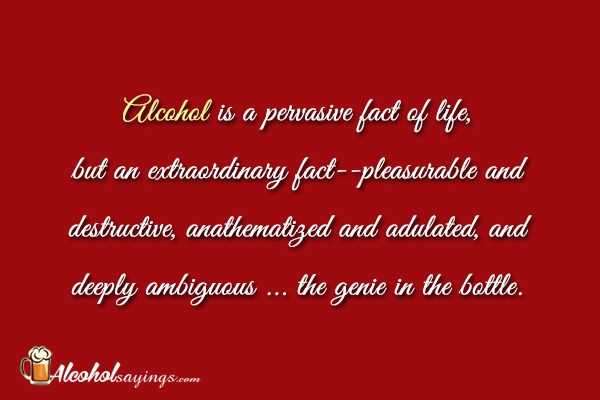
If alcoholism is a disease, it is a strange one, because the alcoholic is the most direct cause of his or her own sickness. If alcoholism is not a disease, then what else might it be?… If alcoholism is defined as a personal failure or a moral weakness, alcoholics are less likely to be viewed with sympathy and compassion. They might be admonished to quit drinking, be put in prison, or be punished in some other way. These responses to their alcoholism would be administered primarily by the legal system rather than the health care system, as medical interventions are not designed to remedy moral failings.
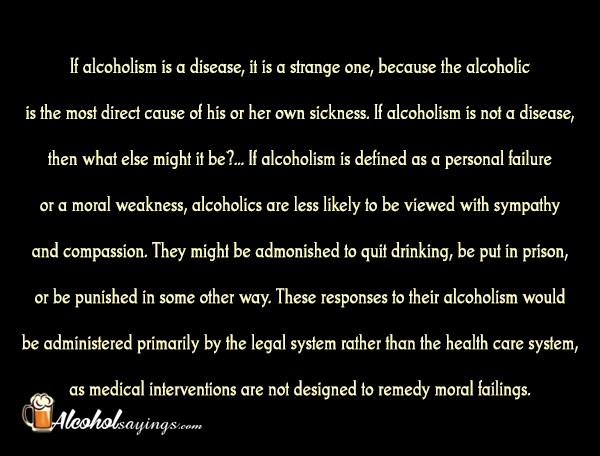
He that is a drunkard is qualified for all vice.

Alcohol is perfectly consistent in its effects upon man. Drunkenness is merely an exaggeration. A foolish man drunk becomes maudlin; a bloody man, vicious; a coarse man, vulgar.
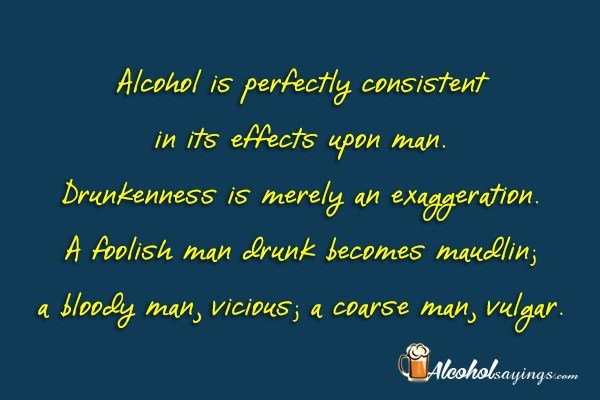
Drink does not drown Care, but waters it, and makes it grow faster.
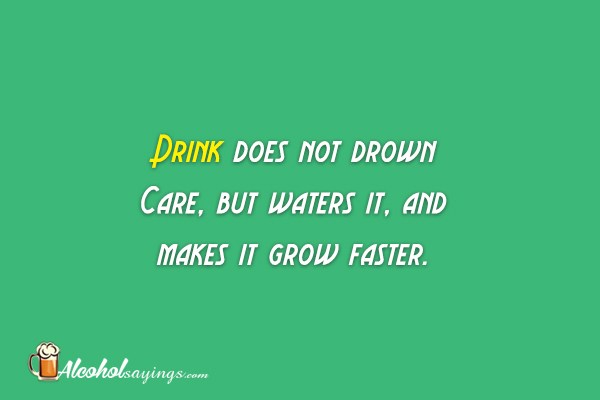
Drunkenness being nothing but a voluntary madness, it emboldens men to undertake all sorts of mischief; it both irritates wickedness and discovers it; it does not only make men vicious, but shows them to be so; and the end of it is either shame or repentance.
